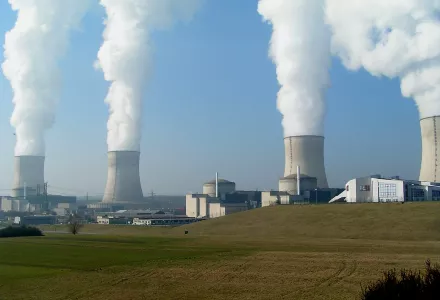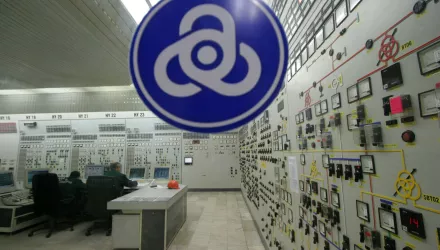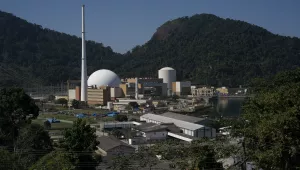The future of nuclear energy is uncertain. On one hand, new opportunities arise for this technology to play a role in decarbonizing energy systems and mitigating climate change. On the other hand, nuclear energy is still haunted by its old demons: safety, non-proliferation, waste management, lack of economic competitiveness, and failures to secure social license. The geopolitical map of nuclear energy is also shifting. Emergence of new leading actors such as China and the growing dominance of Russia might reshuffle the cards of global nuclear governance which creates new opportunities, but also new risks. In this panel, four Managing the Atom scholars will examine the prospects of nuclear power and identify factors that could propel or obscure the future of nuclear energy.
Ali Ahmad is a Research Fellow studying energy policy at Harvard Kennedy School’s Project on Managing the Atom and International Security Program. His research interests include energy security and resilience and the political economy of nuclear energy in newcomer markets, with focus on the Middle East. Prior to joining MTA, Ali served as Director of the Energy Policy and Security Program at the American University of Beirut. From 2013 to 2016, Ali was a postdoctoral fellow at Princeton University’s Program on Science and Global Security where he worked on informing nuclear diplomacy with Iran. Outside academia, Ali is a senior consultant at the World Bank advising the Energy and Extractive Industries Global Practice. Ali holds a first degree in Physics from the Lebanese University and a PhD in Engineering from Cambridge University.
Julien de Troullioud de Lanversin is a Postdoctoral Research Fellow at the Project on Managing the Atom. A nuclear engineer by training, Julien applies his knowledge on nuclear technologies to investigate issues related to nuclear non-proliferation and arms control, advanced reactor technologies as well as policies around nuclear energy. Julien also works to promote open-source and transparent scientific tools that can contribute to research in nuclear security and nuclear technologies. He is the project lead for the open-source nuclear physics code ONIX (https://onix-documentation.readthedocs.io/en/latest/). Having received a scientific education both in China and the U.S., Julien is also interested in studying how the rise of Chinese science affects international collaboration in science (such as the U.S.-China scientific partnership) as well as its impact on the nuclear industry and nuclear arms control. Prior to joining MTA, Julien spent two years as a nuclear security postdoctoral fellow at Stanford University's Center for International Security and Cooperation. He holds a Ph.D. in Applied Physics from Princeton University, an M.Sc. in Nuclear Science and Technology from Tsinghua University Beijing, and a Diplôme d'Ingénieur (M.Sc. and B.Sc.Eng.) from Ecole Centrale de Marseille.
Michael Buchdahl Roth is a joint-Postdoctoral Fellow at the Belfer Center's Project on Managing the Atom and Tel Aviv University’s Department of Public Policy. Dr. Roth’s research is at the intersection of engineering and public policy and focuses on deep-decarbonization of energy systems, nuclear power generation, energy and environmental policy. Specifically, Dr. Roth focuses on energy systems modeling and has published work that: details the economics of preserving existing U.S. nuclear power plants as a carbon abatement strategy, simulates how CO2 and local air pollution taxes could change the U.S. energy system, and carried out a wind turbine feasibility study for Oberlin College. Dr. Roth earned his Ph.D. in Engineering and Public Policy at Carnegie Mellon University, his Masters degrees at Duke University and University of Chicago, and his BA from Oberlin College. Dr. Roth’s current research is supported by the Zuckerman Institute.
Aditi Verma is a Visiting Scholar at the Belfer Center’s Project on Managing the Atom and a Research Scientist in the Department of Nuclear Engineering and Radiological Sciences at the University of Michigan where she will begin an appointment as an Assistant Professor in Fall 2022. Aditi was previously a Stanton Nuclear Security Postdoctoral Fellow at the Belfer Center's Project on Managing the Atom and the International Security Program. Aditi is broadly interested in how nuclear technologies specifically and complex systems broadly—and their institutional infrastructures—can be designed in more just, equitable, and participatory ways that are epistemically inclusive of both lay and expert perspectives. To this end, she is interested in developing a more fundamental understanding of the early stages of the design process to improve design practice and pedagogy, and also improve the tools with which designers of complex sociotechnical systems work. Aditi holds undergraduate and doctoral degrees in Nuclear Science and Engineering from MIT. Her doctoral research, funded by the Sloan Foundation and a Spira Fellowship, combined theoretical and methodological resources from design studies and sociology to study how reactor designers make decisions in the foundational early stages of design, particularly those bearing on safety. Aditi has also previously held positions at the International Atomic Energy Agency, Framatome (formerly Areva), and the Center for the Study of Science, Technology and Policy.



